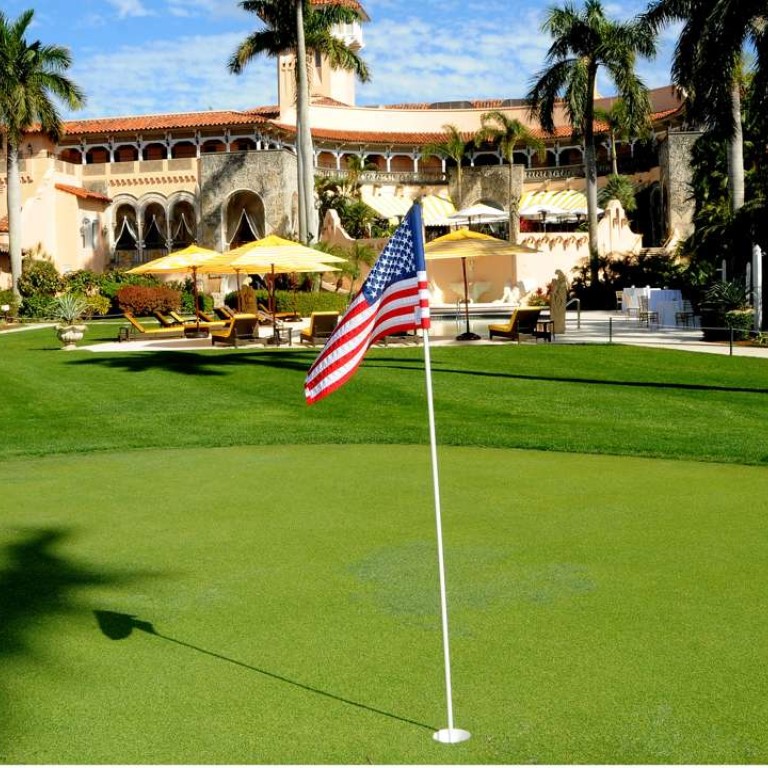
Opinion: why the Xi-Trump summit in Florida will be one for the history books
And so, at long last, Chinese President Xi Jinping will meet his unconventional and bombastic US counterpart Donald Trump. The two leaders will meet at an informal summit hosted on Thursday and Friday at Trump’s estate in Mar-a-Lago in Palm Beach, Florida. With the stakes as high as ever in the relationship between the world’s foremost superpower and its burgeoning rival, the Mar-a-Lago summit stands to be historic.
Although neither side has exactly clarified the agenda for the Trump-Xi talks, we already have a good idea of what topics the two leaders may be broaching. First, Trump took to Twitter last week, as is his trademark, to set out a “first offer” of sorts for Xi: “The meeting next week with China will be a very difficult one in that we can no longer have massive trade deficits and job losses. American companies must be prepared to look at other alternatives,” he said.
Trump, the self-proclaimed master negotiator, has laid down the line for Xi that “massive trade deficits” will no longer be tolerable. Incidentally, on Friday, the office of the United States Trade Representative released its 2017 National Trade Estimate Report, which outlines a range of Chinese anticompetitive and unfair trade practices, ranging from continued complaints over excess capacity to online piracy to cybersecurity.
Chinese official representatives have so far said little of substance on how they plan to handle the Trump administration’s almost dogmatic commitment to enforce existing trade deals and crack down on what are perceived as a deeply unfair trade balance. Chinese State Councillor Yang Jiechi has met with Trump’s Secretary of State Rex Tillerson, with the two vowing to maintain a “mutually beneficial economic relationship between the two largest economies in the world”. Either way, the issue of trade promises to sit at the top of the US agenda when Xi comes to Mar-a-Lago.
Second, expect North Korea to appear on the agenda. During the presidential transition, Trump, who was famously averse to receiving intelligence briefings at the frequency of former presidents-elect, specifically requested briefings on North Korea, suggesting a notable degree of presidential interest in the topic. Despite the complexity of the North Korean problem today, with the country’s parallel nuclear weapon and ballistic missile programmes marching on, Trump sees China as the source of a solution.
Moreover, Pyongyang may decide to butt in uninvited on the diplomatic proceedings at Mar-a-Lago, as it did during Japanese Prime Minister Shinzo Abe’s visit to the US in February when it tested a new missile. Recent satellite imagery analysis suggests the country’s sixth nuclear test may be imminent. North Korea has shown little deference to China’s diplomatic calendar before. It fired three missiles last year as Beijing hosted the G20 leaders in Hangzhou.
While North Korea and trade no doubt will sit at the top of the agenda, the breadth of the US-China relationship leaves several possibilities open. For instance, will Trump insist on voicing support for freedom of navigation and overflight in the South and East China Seas in accordance with decades of US policy? Will the United States even broach the topic of human rights or Taiwan? Finally, on Taiwan, will Trump make any attempt to touch the raw nerve of putting the United States’ “one-China” policy on the negotiating table as a bargaining chip? Any attempt to broach the topic with Xi in town could quickly sour the summit.
Beyond these substantive questions, observers should look for answers to some of the higher-level questions about the US-China relationship. Namely, will Trump and Xi make any attempt to set up even the appearance of a good personal rapport? Will they attempt to reach some sort of conceptual basis on which to base their great power relationship? Will Xi push for Trump’s acquiescence to China’s “new type of great power relations” concept, which was originally proposed to former US president Barack Obama back at the 2013 Sunnylands summit in California, a similarly casual affair to the Mar-a-Lago summit.
For Trump, the Florida meeting will not only be closely observed by regional partners and allies, looking for assurance that the United States will continue to deal with China in a principled manner, but also by his domestic supporters - perhaps the most important audience for Trump, the showman. Trump’s supporters will be looking for signs that he successfully conveyed to Xi the urgency of action on trade and North Korea.
Come what may at Mar-a-Lago, this summit will be one for the history books.
Ankit Panda is a senior editor at The Diplomat where he writes on international security, diplomacy and economics in the Asia-Pacific region

